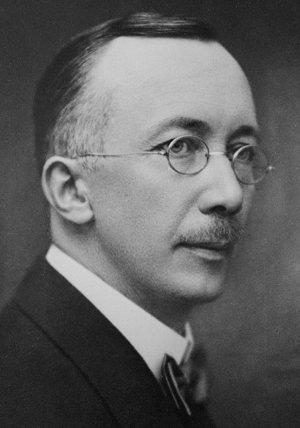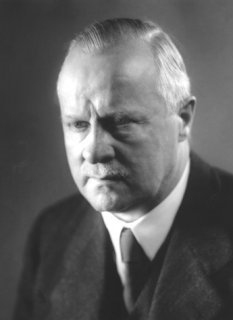<Back to Index>
- Foreign Minister of Finland Eino Rudolf Woldemar Holsti, 1881
- Foreign Minister and Prime Minister of Finland Väinö Tanner, 1881
PAGE SPONSOR

Eino Rudolf Woldemar Holsti (8 October 1881, Jyväskylä – 4 August 1945, Palo Alto, California) was a Finnish politician, journalist and diplomat. He was the Foreign Minister of Finland 1919 – 1922 and 1936 – 1938 and a member of the Finnish Parliament 1913 – 1918 representing the Young Finnish Party (Nuorsuomalainen Puolue). Since 1919 he represented the National Progressive Party. Holsti represented Finland in the League of Nations. He was also a republican (opposing the then ongoing movement for monarchy in Finland). A firm supporter of democracy, he openly criticized Adolf Hitler at the outbreak of war. Holsti worked for newspapers in Hämeenlinna, Lahti and Helsinki together with his friend and school companion Joel Lehtonen. The friendship ended abruptly when Holsti recognized himself as the satirically portrayed and fictive politician Rolf Idell in Lehtonen's book Sorron lapset (1924).
Later in life, Dr. Holsti taught at Stanford University, after he moved to United States with
his two sons: Kalevi and Olavi Holsti (both respected political
scientists in their own right). He maintained a healthy correspondence
with president Herbert Hoover,
and the prime minister and president of Finland. He died on August 3,
1945 at Palo Alto Hospital while undergoing surgery to repair a hernia.
His wife Liisa died of tuberculosis on July 22, 1951.

Väinö Tanner (12 March 1881, Helsinki – 19 April 1966) was a pioneer and leader in the cooperative movement in Finland, and Prime Minister of Finland from 1926 to 1927.
Tanner did not participate in the Finnish Civil War. When the war ended he became Finland's leading Social Democratic Party (SDP) politician, and a strong proponent of the parliamentary system. His main achievement was the rehabilitation of the SDP after the Civil War. Väinö Tanner served as Prime Minister (1926 – 1927), Minister of Finance (1937 – 1939), Foreign Minister (1939 – 1940), and after the Winter War Minister of Trade (1940 – 1942). This final move was due to Soviet pressure.
Väinö Tanner's legacy is in his directing the Finnish working class from the revolutionary ideal towards pragmatic progress through the democratic process. Under his leadership the Social Democrats were trusted to form a minority government already less than 10 years after the bloody civil war. Tanner’s minority socialist government passed a series of important social reforms during its time in office, which included a liberal amnesty law, reduced duties on imported foods, and pension and health insurance laws.
During President Relander's brief illness Tanner, who held the post of prime minister, was even the acting President and Commander - In - Chief. In this role he even received the parade of the White guards on the 10th anniversary of the White victory. This was perceived as a remarkable development at the time. During the 1930s, the Social Democrats formed several coalition governments with the Agrarian party. In the Winter War Väinö Tanner was the foreign minister. Väinö Tanner's leadership was very important in forming the grounds and creating the Spirit of the Winter War which united the nation.
To accommodate the Soviet Union when the Continuation War ended, Väinö Tanner was tried for responsibility for the war in February 1946, and sentenced to five years and six months in prison.
After the Continuation War, and while still in prison, Tanner became the virtual leader of a faction of the SDP which had strong support from the USA. This faction eventually came out on top after a great deal of internal party strife lasting for much of the 1940s.